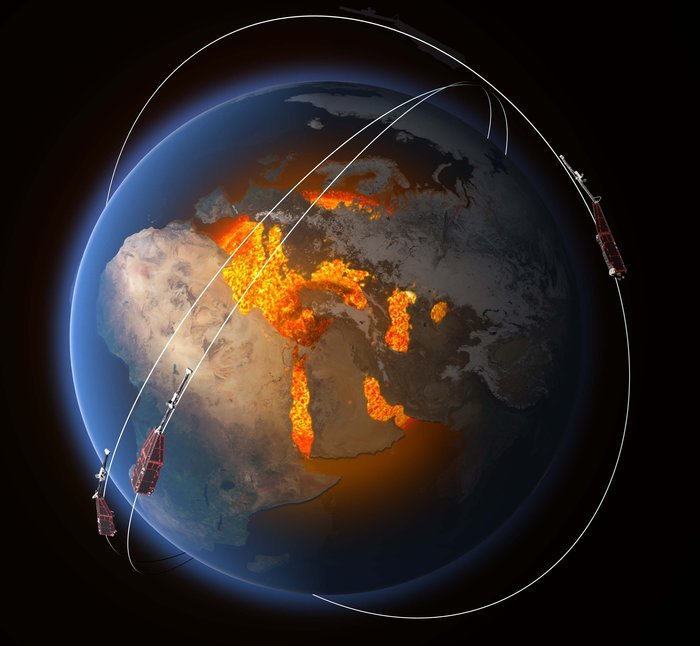A major difficulty in modeling the lithospheric magnetic field using satellite measurements is disentangling its signal from the magnetospheric field signal. The latter originates from the interaction of Earth’s magnetic field with the solar wind, a stream of highly energetic particles emitted from the Sun. I have co-authored a review paper which discusses this topic:
A technique commonly employed to separate the magnetospheric from the lithospheric magnetic field signal is to apply a so-called “track-by-track“ removal of the magnetospheric field. This technique, though, introduces important artifacts in the lithospheric field models. I have co-authored a paper which describes these artifacts:
and another paper that suggests an alternative way to account for the magnetospheric signal in lithospheric field modeling:
Swarm (2013-now), the magnetic field mission of the European Space Agency (ESA) has significantly alleviated the need for this technique because two of its three satellites fly side by side, a configuration that allows to separate the magnetospheric field contribution from the lithospheric one by using the across-track differences of the measurements of these two satellites. The next most important source of contamination of lithospheric field models is the magnetic field over the polar regions due to ionospheric currents and their coupling with the magnetosphere through the Field Aligned currents (FACs). I have submitted a proposal to work on this topic, which got funded by the German Research Foundation (DFG). At the same time I obtained the Marie Curie Fellowship to work on a different topic, which I accepted. Therefore the topic of improving the lithospheric field over the polar regions is among my future research plans.


